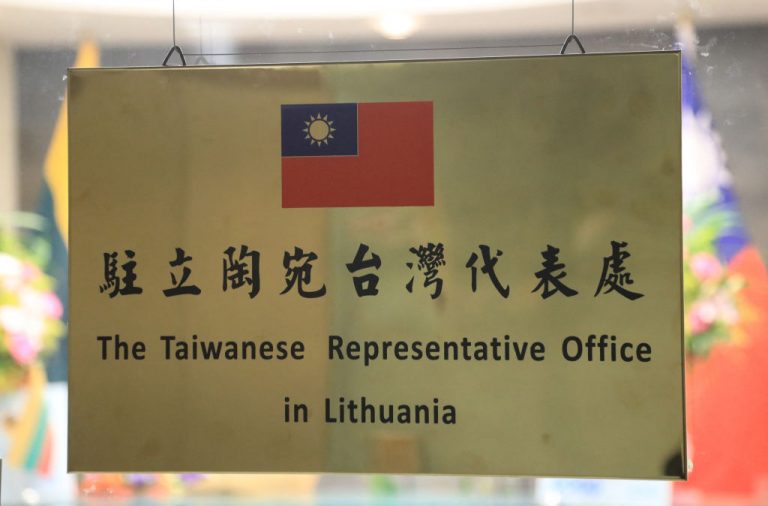The diplomatic tension between Lithuania and China is now forcing European companies to pick sides. Reports suggest that Beijing is pressuring Continental, a major car parts manufacturer from Germany, to cease using components sourced from Lithuania. The conflict between communist China and Lithuania has to do with the status of Taiwan.
In November, Taiwan opened a representative office in Lithuania, the first such office in Europe. Though Taiwan has representative offices in other European nations and in the United States, the office exists under the name Taipei and not Taiwan. This is done to avoid angering Beijing which claims the island to be its territory. After the office was opened, Beijing downgraded diplomatic ties with Lithuania and began a campaign of restricting business with the European nation.
The pressure applied on Continental to avoid using Lithuanian components is part of the Chinese regime’s punishment campaign. Continental’s facilities in Lithuania produce parts like controllers for seats and vehicle doors. Continental has supply contracts with big automakers in Germany.
In a statement, Lithuania’s foreign office stated that companies operating in the country have “successfully integrated” themselves into global supply chains. Beijing’s “economic pressures” can cause disruptions to the various companies operating in the country.
“We closely monitor, analyze and evaluate each such case, including among these German companies… [Lithuania is] looking for long-term sustainable solutions and ways to resume trade flows with China,” a spokesperson from the Lithuanian foreign office said.
Success
You are now signed up for our newsletter
Success
Check your email to complete sign up
In early December, there were reports that China had imposed a customs block on Lithuanian imports. According to Vidmantas Janulevičius, president of the Lithuanian Confederation of Industrialists, Chinese customs have stopped listing Lithuania in its list of origin countries. Consequently, customs forms for products shipped from Lithuania cannot be filled in.
“I regret this decision by the Chinese authorities… It is a pity it was taken despite Lithuania explaining quite clearly that opening of the Taiwanese representation does not clash with the ‘One China’ principle, which we keep to,” Lithuanian President Gitanas Nauseda told reporters on Dec. 3.
The European Commission has come up with a proposal for an “anti-coercion instrument” that will act as a weapon against China’s coercive tactics. The plan seeks to lower the bar for the European Commission to impose sanctions on non-member states.
This will allow the bloc to decisively act as a single unit to counter any economic aggression by non-EU nations. The European Commission insists that the measure is aimed at countering foreign pressure, boosting trade and business, and securing jobs for all citizens of the EU.














